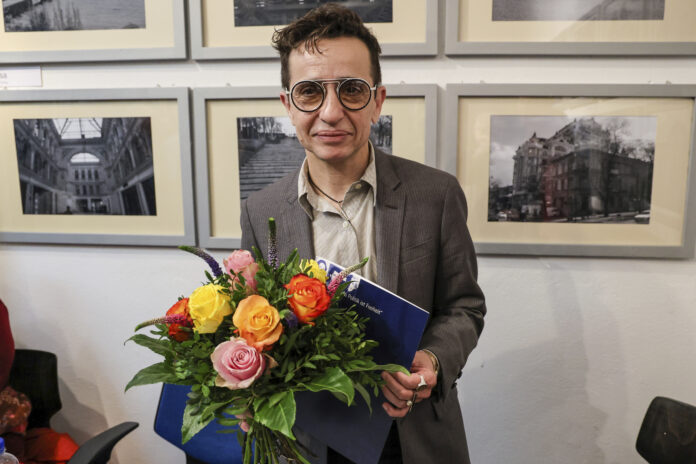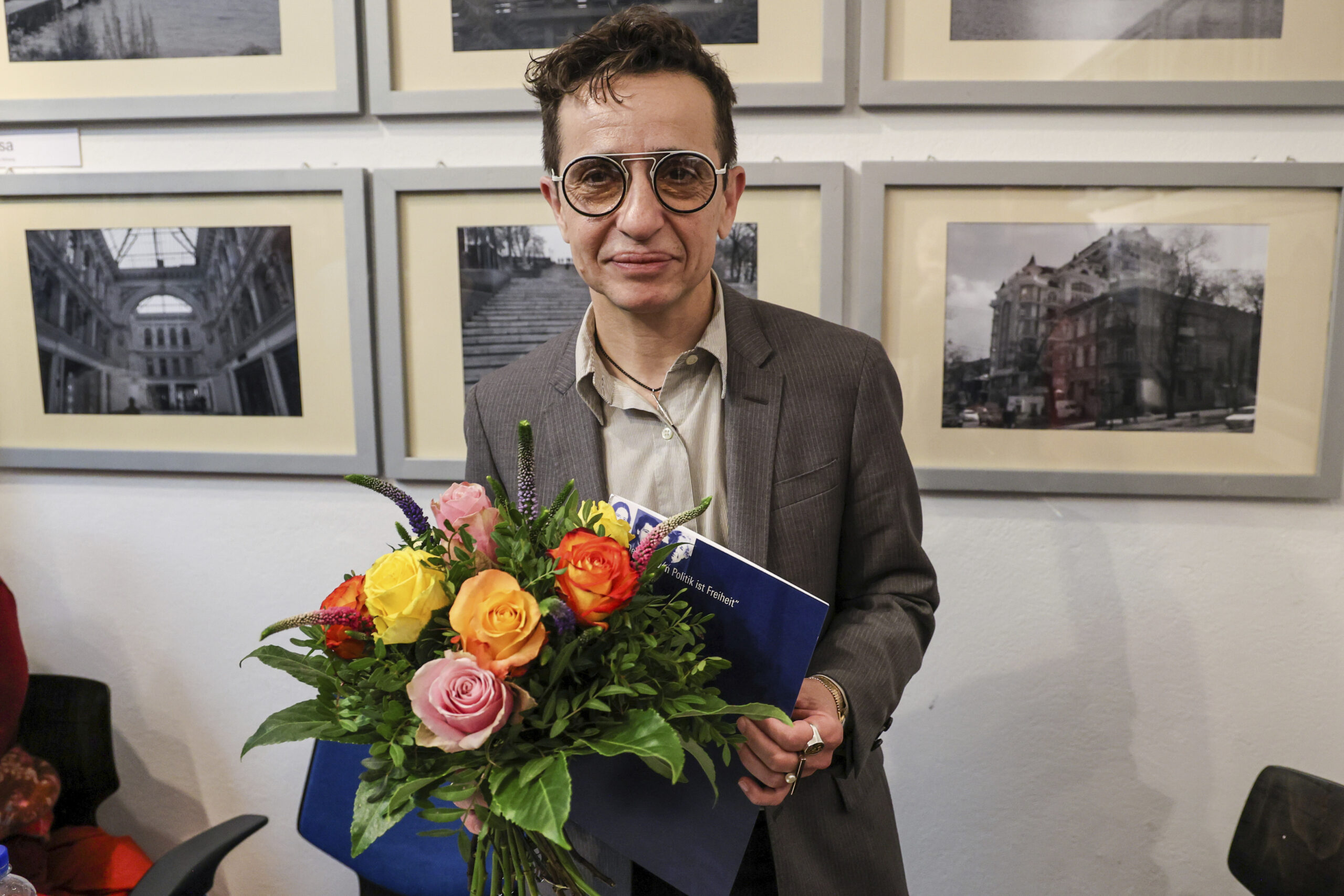
BERLIN (AP) — The Russian-American writer Masha Gessen received a German literary prize Saturday in a ceremony that was delayed and scaled down in reaction to an article comparing Gaza to Nazi German ghettos.
The comparison in a recent New Yorker article was viewed as controversial in Germany, where government authorities strongly support Israel as a form of remorse and responsibility after Adolf Hitler’s Germany murdered up to 6 million Jews in the Holocaust.
Gessen, who was born Jewish in the Soviet Union, is critical of Israel’s treatment of Palestinians.
Reaction to the article comes as German society grapples with the fallout from the Israel-Hamas war, with both pro-Palestinian protests and pro-Israel demonstrations taking place in past weeks. German leaders have repeatedly stressed their support for the country’s Jews and for Israel as they have denounced antisemitic incidents.
Gessen was originally due to receive the Hannah Arendt Prize for Political Thought on Friday in the city hall of Bremen, in northwest Germany, but the sponsoring organization, the Heinrich Böll Foundation, and the Senate of the city of Bremen withdrew from the ceremony.
It took place instead in a different location Saturday with about 50 guests crowded into a small event room and with police security, the German news agency dpa reported.
In Gessen’s article, titled “In the Shadow of the Holocaust,” the author explores German Holocaust memory, arguing that Germany today stifles free and open debate on Israel.
Gessen also is critical of Israel’s relationship with Palestinians, writing that Gaza is “like a Jewish ghetto in an Eastern European country occupied by Nazi Germany.”
“The ghetto is being liquidated,” the article added.
The ghettos in German-occupied countries during World War II were open-air prisons where Jews were killed, starved and died from diseases. Those who didn’t perish there were rounded up and transported to death camps where they were murdered, a process called “liquidation.”
The Böll Foundation, affiliated with Germany’s Green party, called the comparison “unacceptable.” A jury decided in the summer to award Gessen, an outspoken critic of Russian President Vladimir Putin, and the foundation said it wasn’t cancelling the award itself.
Gessen was not available for comment, a New Yorker spokesperson said, but the writer defended the article in an interview with Politico.
“I think it is possible to be very upset about that comparison,” Gessen told Politico. “I also think that in this circumstance, it is morally necessary and politically necessary to make this very, very upsetting comparison.”
The award is to honour people who contribute to public political thought in the tradition of Hannah Arendt, the German-born American political theorist who explored totalitarianism.



















































